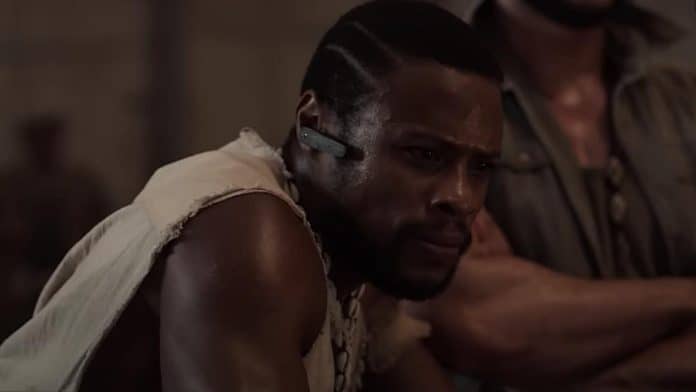Justice Served is a socially charged crime series that follows a group of rebels that hold a courtroom captive and livestream the proceedings. The show is now streaming on Netflix.
Warning: This article contains heavy spoilers
Plot summary
Justice Served is a show that highlights individual desires for power, freedom and justice.
The show follows the rebel organisation, Namoor, headed by Azania Maqoma, who form a plan to let the citizens of South Africa decide the outcome of a courtroom trial.
A white man is charged with the murder of a young black man, Zilo, and he pleads that it was an act of self-defence.
Maqoma locks all the courtroom exits and live streams the trial, in an attempt to take justice into his own hands. He asks the country to vote, and if declared guilty, he would kill the man.
The judge tries to reason, but Maqoma brings forth the ineffectiveness of the justice system and feels the need to thus take matters into his own hands.
The Namoor were historically a group that fought for the underprivileged who could not rally for themselves. They were a close-knit community, with no power-hungry ideals.
The live stream steadily catches the attention of the public, and general opinion leaned towards the beliefs of the Namoor.
The Minister of State Security tries to intervene, and it is later revealed that he had connections to the Namoor people as well.
Maqoma’s past connections to the accused, Allen Harvey, also come out along with many other unresolved and unanswered twists in the plotline.
The situation also involved Brigadier Mashaba and her daughter Itu, and her attempts at fighting the system. Itu is later killed because of assumptions that she was a Namoor.
The complicated ties of relationships between Abel and Maqoma also come forth, along with rapid changes in the direction of the plot.
In a quest to attain justice, the ending questions if there ever was any justice to be served. The political gains and power dynamics between the characters only end up serving more oppression, not justice.
Justice Served ending explained in detail:
How does Maqoma know Allen Harvey?
Once Maqoma starts diving into Harvey’s past and brings up incidents and crimes that he had previously committed, the latter realises they recognize each other.
Harvey had shot Maqoma’s friend dead back when he was in the army. Even if he was not guilty now, his past crimes were catching up to him.
Even though Harvey now claims to be a changed man, Maqoma still wishes to exact revenge on him for his past actions.
What is the connection between Abel and the Namoor?
Abel Kunene, who was the Minister of State Security, used to be a Namoor.
Abel and Maqoma were childhood friends, and had a long history together as they grieved together when their friend was shot, and were brought into the Namoor circle together.
The Namoor ideology was never one about power, but the two friends each interpreted such ideas in their path. This led to a clash between the two, leading to the death of many in the group.
Maqoma survived, and decided to take revenge on Abel for his actions.
Is Allen Harvey condemned for his crimes?
In a twist of events, Uhuru- a Namoor, began to grow suspicious of Maqoma’s plans and realised that his intentions went against the very ideology of the Namoors.
Uhuru is close to Karabo, a journalist, and she reveals the truth behind how he was killing people and what his true intentions were to the rest of the country.
This revelation turns the tide of votes, and Allen Harvey is miraculously found not guilty. However, this does not mean that he survives.
Harvey ends up getting killed by the brother of the man he had killed in self-defence, Zilo.
What was Maqoma’s plan all along?
After a fight with Abel, Maqoma’s true side is steadily revealed to the audience. Abel had goals to take over total control of the politics, but Maqoma beat him to it.
Along with the courtroom, Maqoma also hijacked his plan and took over the control Abel was planning on getting for himself. In doing so, he goes against all Namoor principles.
He launches a statement, asking the country to align with his ideas or they would be considered enemies of the Namoors. He now takes on the role of a dictator, thus using the entire idea of justice for his own personal gains.
Also Read: The Gray Man ending explained: Is Lloyd Hansen dead or alive?

